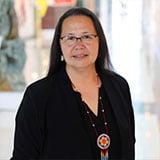Including Indigenous voices in Canada’s nuclear discussions

While SMR developers have been engaging with Indigenous Peoples on nuclear projects for decades, advocacy groups such as the Assembly of First Nations, are demanding more meaningful consultation and input.
Historically, Indigenous Peoples have been marginalized by Canada’s colonial appropriation of land and resources. Prior to the 1982 Canadian Constitution Act (The Act), resource development—including nuclear energy—did not require consultation with Indigenous Peoples. The Act, along with the 2021 United Nations Declaration on the Rights of Indigenous Peoples (UNDRIP), outlines principles that must be adhered to regarding resource development of any kind, including discussions and collaboration with Indigenous Peoples.
UNDRIP also references Free, Prior, and Informed Consent (FPIC), which is a framework for reconciliation. Applied to nuclear energy and waste, it recognizes the inherent right of Indigenous Peoples to self-determination. This gives them a decision-making voice on how nuclear development and waste management projects will impact their communities and environments.
Personal perspective
We did not use conventional methods in researching our academic paper, titled “Nuclear Development and Waste Management: Meeting Indigenous Peoples’ Needs and Values on Proposed Approaches and Solutions.” Rather, we embraced First Nation storytelling traditions by interviewing six First Nations professionals from across Canada. Where each had a connection to their culture, their traditions, and to the nuclear industry. We used quotes from the interviews to guide the five concluding recommendations.
The six interviewees held varying views on nuclear energy, but shared a spiritual and cultural connection to, and a responsibility for, the land and water. All the interviewees spoke about preserving and protecting the environment for future generations.
They subscribe to a teaching called the Seven Generations Principle, which emphasizes that the actions of all humans today can have a significant influence and impact seven generations into the future. This teaching reinforces the importance of making a positive impact so that future generations can also benefit from the land and its resources. This teaching is for all human beings who benefit from the environment and enforces that the responsibility is on us all to protect it.
One interviewee shared a compelling story, an embodiment of this teaching, about the Sahtu Dene People from the Northwest Territories who transported uranium that—unbeknownst to them—was used for the atomic bomb dropped on Hiroshima, Japan. A notable event in history that still impacts generations today. When the Sahtu Dene people found out, a delegation traveled to Japan to express remorse to the bomb survivors. Even though they were unaware of its intended use, they were so compelled to take responsibility, to apologize for the fact that the uranium came from their territory.
Going forward
All interview participants referenced education, partnerships, and co-development as the path forward, asserting that First Nations have a right to decide how they want to be involved in nuclear development and waste management projects. There will be an impact from nuclear development to their traditional territories, this is why it is crucial for early and meaningful engagement. It is equally important that First Nation communities are provided co-development and partnership opportunities, as this is part of an informed decision-making process and represents true economic reconciliation.
To ensure a better future, interviewees insisted on organized engagement that includes accurate and equal representation. In this case from the four provinces (Ontario, Alberta, Saskatchewan, and New Brunswick) that endorsed the SMR Action Plan.
Some participants noted that meaningful consultation can only take place if First Nations have a thorough understanding of all aspects of nuclear development.
Education was referenced as a fundamental piece to informed participation, with emphasis on the need for industry and government to provide access to information in ways that communities can understand. Also, it’s important to note this process takes time and to refrain from pressuring communities for immediate decision-making to accommodate industry and government schedules.
Partnerships and equity options also came up as crucial for First Nations. It’s generationally sustainable for communities to have these sources of revenue and are reflective of their culture and values. They can and should be co-developers and/or owners.
Not surprisingly, all participants said that the younger generation is the key to unlocking future success and suggested Indigenous youth be exposed to science, technology, engineering, and mathematics at an early age. Doing so, they said, would lead to well-informed decision-making by their future leaders in the nuclear development arena.
Collectively, the interviews led to five recommendations:
- Early engagement
- Education and informed decision-making
- Representation
- Environment and seven generations
- Economic reconciliation
Our research indicates that implementing these recommendations would be a good first step in working toward equal representation at the decision-making table.
At Hatch, we believe a successful project needs to do more than deliver its intended business purpose. It must wholeheartedly embrace the mantra of leaving the community better equipped to thrive and prosper, ensuring a brighter future for the lives it affects.
Our experts meet people where they are, with the values they hold.
Discover the future of sustainable community engagement.
Dive into our comprehensive study, Nuclear Development and Waste Management: Meeting Indigenous Peoples’ Needs and Values on Proposed Approaches and Solutions,and join the conversation on innovative solutions that honor the principles and perspectives of Indigenous communities.

Julia Domaradzki
Analyst, Community Engagement & Social Performance
Julia is an analyst with the community engagement and social performance team at Hatch. With experience in the private sector and public service, Julia is effective at meeting engagement goals and delivering client service excellence. Julia also has experience supporting the regulatory process, focusing on the duty to consult and Section 35 Rights in transportation and mining projects. She was a delegate to the United Nations Youth Assembly in 2016 and since then, has been an advocate for sustainable development and meaningful community engagement. Julia holds a bachelor of arts in political science and French with a minor in Spanish, and a master in public and international affairs.
